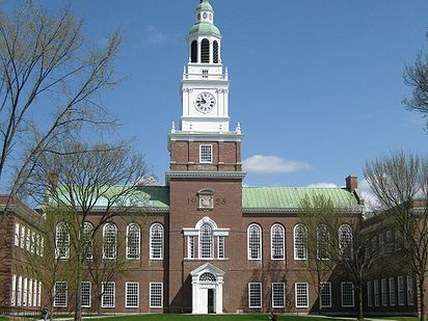The Government Thinks Ranking Colleges Is As Easy As 'Rating a Blender'


An Education Department official who famously declared that ranking colleges is just like "rating a blender" does not deserve an "A" for effort, according to perturbed university administrators.
The comment, made last November by DOE Under Secretary Jamienne Studley, alarmed many university presidents who claimed that federal efforts to establish an objective college ranking database would be prone to error.
Months later, numerous administrators are still concerned that an onslaught of new regulations based upon a misguided government ranking system would cause more harm than good, according to The New York Times:
In interviews, several college presidents expressed deep reservations about the idea.
"As with many things, the desire to solve a complicated problem in what feels like a simple way can capture people's imagination," said Adam F. Falk, the president of Williams College in Massachusetts. Dr. Falk said the danger of a rating system is that information about the colleges is likely to be "oversimplified to the point that it actually misleads."
Charles L. Flynn Jr., the president of the College of Mount Saint Vincent in the Bronx, said a rating system for colleges is a bad idea that "cannot be done well." He added, pointedly, "I find this initiative uncharacteristically clueless."
President Obama's "uncharacteristically clueless" idea is to compile a database of colleges and universities that ranks them according to factors such as graduation rates, employment levels of recent grads, average debt, etc. Students could use the database as a reference when deciding where to attend school, and lawmakers would consult it when determining how much public money to dump on the lawn of their local campus.
In a statement that likely set zero college administrators at ease, a White House advisor clarified that this policy would only hurt the bad universities:
"He is not interested in driving anybody out of business, unless they are poorly serving the American people," said Cecilia Muñoz, the director of the White House Domestic Policy Council. "In which case, I think he's probably pretty comfortable with that."
White House officials claim to be increasingly concerned about rising student debt levels, as is the general public. Certainly, college administrators—especially those who work at taxpayer-subsidized universities that spend millions of dollars on fancy stadiums and luxury hotels—should expect a reckoning.
But it's hard to believe the federal government could cobble together a central database with valid insights about which colleges deserve to be driven out of business. Constructing such a system is probably a little harder than rating a blender.


Show Comments (101)